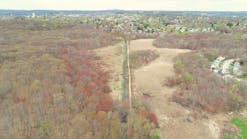27 NGOs Pledge Support for Urban Waters Federal Partnership
Source The U.S. Environmental Protection Agency
A coalition of 27 non-governmental organizations (NGOs) have pledged to support the Urban Waters Federal Partnership as it works to restore waterways and revitalize communities across the country. The NGOs will align resources, funding, and expertise with federal efforts to restore urban waters and parks, increase outdoor recreation, and engage residents and youth.
The announcement came as federal agencies and NGOs convened in Washington, D.C. to share best practices on restoring urban waterways. Many urban waterways have been polluted for years by sewage, runoff from city streets, and contamination from abandoned industrial facilities. Healthy and accessible urban waters can help grow local businesses and enhance economic, educational, recreational and social opportunities in nearby communities. Reconnecting residents to their local urban waters helps communities to actively participate in restoring urban waters while improving their neighborhoods.
The Urban Waters Federal Partnership is made up of 13 federal agencies working to reconnect urban communities with their waterways by improving coordination among federal agencies and collaborating with community-led revitalization efforts. The Urban Water Federal Partnership is led by the U.S. Environmental Protection Agency, the U.S. Department of the Interior, the U.S. Department of Agriculture, and the U.S. Department of Housing and Urban Development. Launched in 2011, the federal partnership provides grants, resources and expertise to local governments looking to restore urban rivers and jumpstart local economies, particularly in underserved communities. The Urban Waters Grant program, which currently supports 19 communities in some of the country’s largest cities, has awarded more than $1.8 million since its inception, with grantees leveraging an additional $6.7 million in local project support.
Examples of how NGOs are already supporting the partnership and advancing efforts, which will be expanded through the new pledge of support include:
- Baltimore: The Conservation Fund is leading a project with NGOs, and federal and state agencies to protect and increase green infrastructure in the Baltimore metropolitan region. Partners are now assessing the use of existing green infrastructure to increase resiliency to coastal storms and other climate change effects, such as sea level rise.
- Bronx River: A public access project on the Bronx River became possible through collaboration of Amtrak, local NGOs, and federal, state, and local agencies. With more than $16 million in funding, a groundbreaking event is slated for spring 2015.
- Harlem River: The Trust for Public Land and Pratt Institute are working with the National Park Service, EPA, New York City and community groups to create a new waterfront greenway along the Bronx side of the Harlem River, connecting the river to neighborhoods. TPL and Pratt are leading a visioning project for a “Green Print” for the waterfront.
- Los Angeles and Washington, D.C.: Federal agencies and local partners have identified funding and support to establish native plant nursery pilot projects in underserved communities in Los Angeles and Washington, D.C. The University of the District of Columbia is providing land and in-house expertise to establish a nursery in D.C. and the National Park Service has committed seed funding and nursery staff support for the Los Angeles site.
- Delaware River Basin: With federal funding, Wilderness Inquiry was able to reach an additional 2,500 underserved youth to paddle urban rivers. Expanding from the Bronx and Anacostia rivers, Wilderness Inquiry was able to include at-risk urban youth throughout the Delaware River Basin. At risk youth paddled the Delaware River, learned about the watershed and their community, and collected water samples for analysis and study
For more information visit www.urbanwaters.gov
Source: The U.S. Environmental Protection Agency






